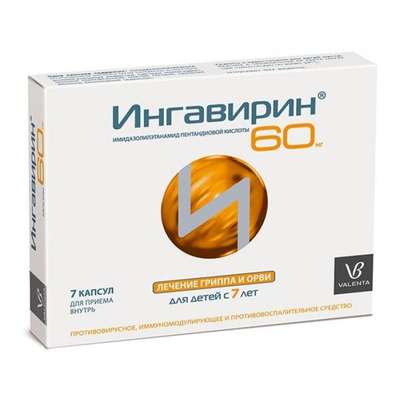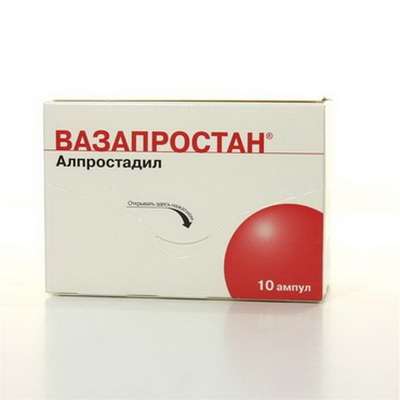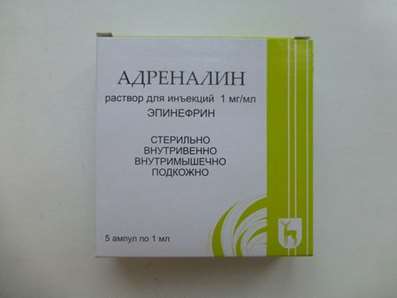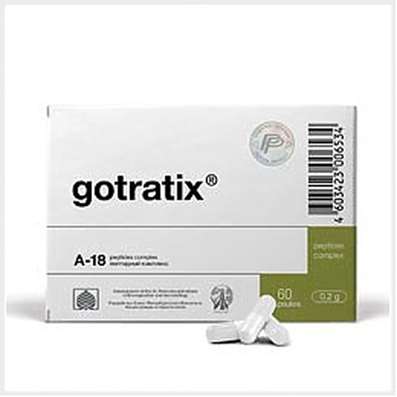Instruction for use: Loveston
I want this, give me price
ATX code G03AA10 Gestodene + ethinylestradiol
Pharmacological group
Estrogens, gestagens; Their homologues and antagonists
Nosological classification (ICD-10)
N94.6 Dysmenorrhea Unspecified
Pain during menstruation, Functional disorders of the menstrual cycle, Menstrual cramps, Emmeniopathy, Pain during menstruation, Painful menstrual irregularities, algomenorrhea, algomenoreya, Pain smooth muscle spasm, Pain spasm of smooth muscles (renal and biliary colic, intestinal spasms, dysmenorrhea), Pain spasm of smooth muscles of internal organs (kidney and biliary colic, intestinal spasms, dysmenorrhea), Disalgomenoreya, dysmenorrhea, Dysmenorrhea (essential) (Exfoliative), menstrual disorder, menstruation painful, metrorrhagia, Violation of the menstrual cycle, Menstrual irregularities, Prolaktinzavisimoe menstrual disorders, Prolaktinzavisimoe menstrual dysfunction, Pain spasm of smooth muscles of internal organs, Spasmodic dysmenorrhea, Primary disalgomenoreya
Z30 Monitoring contraceptive use
Local Contraception, Contraception oral, Local contraception, Episodic prevention of pregnancy, Hormonal Contraception, Contraception, Prevention of Pregnancy, Prevention of unwanted pregnancy, Contraceptive intrauterine, Contraception in women with androgenization phenomena, Installation and removal of the intrauterine device, Prevention of pregnancy (contraception)
Z30.0 General advice and advice on contraception
Safe sex, Intrauterine device contraception, Contraception, Contraceptive intrauterine, Oral contraception, Oral contraception during lactation and with estrogen contraindications, Postcoital contraception, Prevention of Pregnancy, Prevention of unwanted pregnancy, Emergency Contraception, Episodic prevention of pregnancy, Contraception in adolescents, Prevention of pregnancy (contraception)
Composition and form of release
Dragee 1 dragee
Ethinylestradiol 0.02 mg
Gestodene 0.075 mg
Auxiliary substances: lactose monohydrate; corn starch; talc; Magnesium stearate; Sucrose; Polyvidone; Calcium carbonate
In a blister of 21 pcs .; In a box of cardboard 1 blister.
Characteristic
Low-dose monophasic oral combined estrogen-gestagen contraceptive drug.
pharmachologic effect
Pharmacological action - contraceptive.
It is characterized by 3 mutually complementary mechanisms of action: suppression of ovulation at the level of hypothalamic-pituitary regulation; Change in the properties of the cervical secret, as a result of which it becomes impenetrable for spermatozoa; Change in the endometrium, which makes it impossible to implant a fertilized egg.
Pharmacokinetics
Gestoden. After oral administration, it is quickly and completely absorbed; Cmax in the serum, equal to 3.5 ng / ml, is reached after approximately 1 hour.
Bioavailability is approximately 99%.
It binds to serum albumin and does not bind to sex hormone binding globulin (GSHG (globulin binding sex hormones)). In the free form, only about 1.3% of the total serum concentration is found, about 69% are specifically associated with SHBG. Induction with ethinylestradiol synthesis of SHBG affects the binding of Gestodene to the serum protein.
Gestodene is almost completely metabolized. Cl (clearance) from serum is approximately 0.8 ml / min / kg.
The content of Gestodene in the serum undergoes a two-phase reduction. T1 / 2 into the terminal phase is about 12 hours. It is excreted only in the form of metabolites (T1 / 2 - about 24 hours), with urine and bile in a ratio of approximately 6: 4. The pharmacokinetics of Gestodene is affected by the level of SHBG in serum.
As a result of the daily intake of the drug, the serum level of the substance increases approximately 4-fold during the second half of the treatment cycle.
Ethinylestradiol. After oral intake quickly and completely absorbed. Cmax in the serum, equal to about 65 pg / ml, is achieved in 1.7 hours. During the absorption and first passage through the liver, ethinyl estradiol is metabolized, resulting in an average bioavailability of about 45%.
Almost completely (approximately 98%), although non-specific, binds to albumin. Ethinyl estradiol induces synthesis of SHBG. The apparent volume of distribution of ethinylestradiol is 2.8-8.6 l / kg.
In the body, ethinyl estradiol undergoes presystemic conjugation, both in the small intestine mucosa and in the liver. The main pathway of metabolism is aromatic hydroxylation. The rate of Cl from the blood plasma is 2.3-7 ml / min / kg.
The decrease in concentration is of a two-phase nature; The first phase is characterized by T1 / 2 about 1 h, the second - 10-20 h. Unchanged from the body is not excreted. Metabolites of ethinyl estradiol are excreted in urine and bile in a ratio of 4: 6 with T1 / 2 for about 24 hours.
Indications
Contraception, functional disorders of the menstrual cycle.
Contraindications
Hypersensitivity to any of the components of the drug; Thrombosis (venous and arterial) and thromboembolism at present or in the anamnesis (including deep vein thrombosis, pulmonary embolism, myocardial infarction, cerebrovascular disorders); Migraine with focal neurologic symptoms in history; Cardiovascular complications of diabetes mellitus; Multiple or expressed risk factors for venous or arterial thrombosis, incl. Damage to the valvular apparatus of the heart, disturbance of the rhythm of the heart, disease of the vessels of the brain or coronary arteries of the heart; Uncontrolled arterial hypertension; Pancreatitis with severe hypertriglyceridemia at present or in the anamnesis; Hepatic insufficiency and severe liver disease (until liver tests are normal); Liver tumors (benign or malignant) at present or in the anamnesis; Identified hormone-dependent malignant diseases (including genitals or mammary glands) or suspected of them; Vaginal bleeding of unknown origin; Prolonged immobilization, serious surgical intervention, surgical operations on the legs, extensive injuries; Pregnancy or suspicion of it; Period of lactation.
If any of these conditions develop for the first time against the background of the drug, the drug should be immediately withdrawn.
pregnancy and lactation
Contraindicated in pregnancy, breastfeeding. If pregnancy is detected during treatment with Loveston, the drug should be immediately discontinued.
Side effects
From the digestive system: gastralgia, nausea, vomiting, jaundice, diarrhea.
On the part of the endocrine system: engorgement of the mammary glands, weight gain, changes in libido, metrorrhagia.
From the nervous system: headache, mood changes, fatigue.
From the cardiovascular system: thrombophlebitis, thromboembolism.
Allergic reactions: skin rash, swelling of the eyelids, conjunctivitis, poor tolerance of contact lenses.
Other: spotting spotting and breakthrough uterine bleeding, fluid retention, weight change.
Interaction
Sulfonamides, derivatives of pyrazolone increase the metabolism of steroid hormones included in the preparation.
Prolonged treatment with drugs that induce liver enzymes (phenytoin, barbiturates, primidone, carbamazepine and rifampicin, and there are suggestions with regard to oxcarbazepine, topiramate, felbamate, ritonavir, griseofulvin and preparations containing St. John's wort), resulting in increased clearance of sex hormones can lead To breakthrough bleeding and / or reduced contraceptive effectiveness of the drug Loveston.
Contraceptive protection is reduced by taking antibiotics (such as ampicillins and tetracyclines) because Some antibiotics may reduce intrahepatic circulation of estrogen, thereby decreasing the concentration of ethinyl estradiol.
When receiving estrogen-progestin drugs may require correction dosing regimen hypoglycemic agents and anticoagulants.
Dosing and Administration
Inside, in the order indicated on the package, every day at about the same time, with a small amount of water. 1 dragee per day continuously for 21 days. Receiving the next pack is started after a 7-day break, during which usually occurs menstrualnopodobnoe bleeding. After a 7-day break, regardless of whether the bleeding has ended or is just beginning, continue taking the drug from the next package. In this case, an easily reproducible rhythm is established: 3 weeks - taking a dragee, 1 week - a break.
Reception of the drug from each package begins on the same day of the week. After discontinuation of the drug, the functions of the gonads quickly recover in full, which provides a normal ability to conceive. Usually the first menstrual cycle after the cessation of treatment is extended by 1 week. If within 2-3 months the normal cycle is not restored, consultation with the doctor is necessary. In case of admission to the drug: if the interval does not exceed 12 hours, it is necessary to take the dragees immediately, the contraceptive effect persists.
If the interval exceeds 12 h, take the missed dragee as quickly as possible, even if it means taking 2 pills at a time. In this case, to achieve a reliable contraceptive effect, additional barrier methods of contraception should be used.
Overdose
Symptoms: nausea, vomiting, spotting spotting or metrorrhagia.
special instructions
Due to the fact that the contraceptive effect of the drug from the onset of admission is fully manifested by day 14, in the first 2 weeks of taking the drug it is recommended to additionally use non-hormonal methods of contraception.
In cases of intermenstrual bloody discharge in the period of 3 weeks of taking the drug, the course should not be interrupted (as a rule, mild bleeding passes independently).
With unusually strong and abundant menstrual bleeding, you should consult your doctor.
In the absence of a menstrual-like reaction during the 7-day interval between doses of the drug, one should not continue using it without consulting a doctor.
Before the beginning and every 6 months of use, a general medical and gynecological examination (including breast exams) is recommended.
Smoking women taking hormonal contraceptive drugs have an increased risk of developing vascular diseases with serious consequences (myocardial infarction, stroke). The risk increases with age and depending on the number of cigarettes smoked (especially in women older than 30 years).
Admission ceases immediately if the following symptoms occur: early signs of phlebitis, thrombosis, embolism (bloating, unusual pain in the legs, chest pain when breathing or coughing, chest tightness), migraine headache, sudden hearing loss and Vision, motor disorders.
The drug is stopped for 6 weeks before the planned surgery, with prolonged bed rest.
The risk of thrombosis increases with high blood pressure.
It is necessary to cancel with hepatitis, jaundice, itching, cholestasis, frequent epileptic seizures, primary or repeated appearance of porphyria, a strong increase in blood pressure, a suspicion of pregnancy.
With diarrhea or vomiting, the contraceptive effect may decrease (in these cases, without stopping the drug, it is necessary to use additional non-hormonal methods of contraception).
Storage conditions
At room temperature.
Keep out of the reach of children.
Shelf Life
2 years.
Do not use after the expiry date printed on the package.

 Cart
Cart





